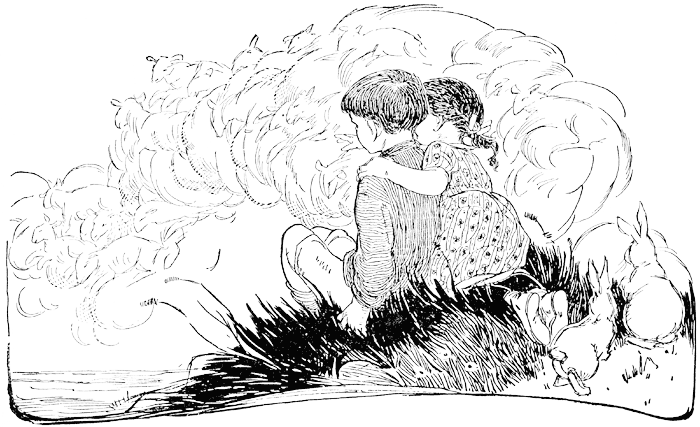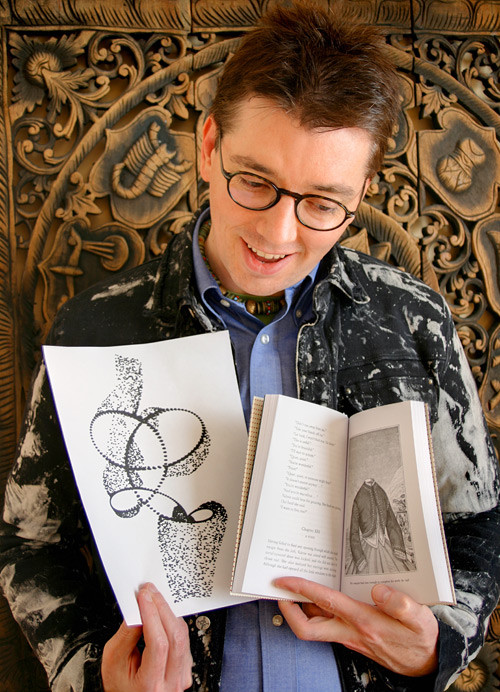I Found a Penny Today, So Here’s a Thought
|
|
|
 |
 |
 |
"It is one of the oddest things in the world that you can read a page or more and think of something utterly different." —Christian Morgenstern (via Futility Closet) |

 |
|
|
 |
 |
 |
"We got it the first time, Kurt [Vonnegut], when the books were written by Voltaire." — William Keckler |


 |
|
|
 |
 |
 |
For an acquaintance who dreams of lazy afternoons in a hammock but whose backyard sports just a single tree, here's a spoof of a poem by dear cousin Emily: To make a hammock It takes some netting and one tree. Netting and a tree And reverie. The reverie alone will do If trees are few. |




 |
|
|
 |
 |
 |
Speaking of one-letter words, Annie Dillard collected her favorite maritime navigation codes, such as: A - I am undergoing a speed trial. D - Keep clear of me; I am maneuvering with difficulty. F - I am disabled. Communicate with me. G - I require a pilot. F - Your lights are out, or burning badly. U - You are standing into danger. X - Stop carrying out your intentions. K - You should stop your vessel instantly. L - You should stop. I have something important to communicate. Our favorite: R - You may feel your way past me.
|

 |
|
|
 |
 |
 |
Vladimir Nabokov asserts that one is the only real number: "All things belong to the same order of things, for such is the oneness of human perception, the oneness of individuality, the oneness of matter, whatever matter may be. The only real number is one, the rest are mere repetition." — The Real Life of Sebastian Knight |



 |
|
|
 |
 |
 |
As we noted last year, our 14th great-grandmother, Mary Sidney, Countess of Pembroke, has many distinctions, not the least of which is her likelihood of having written the Shakespeare plays and sonnets. (For compelling evidence, see Sweet Swan of Avon: Did a Woman Write Shakespeare?) We couldn't help noticing that Mary Sidney's facial features bear an uncanny resemblance to the familiar Shakespeare visage. If the animated gif below doesn't animate, see the before-and-after frames. (Thank you, editor-writer-critic Michael Redmond, for exclaiming, " Ah! The truth at last!") |


 |
|
|
 |
 |
 |
"I hate everything that does not relate to literature, conversations bore me (even when they relate to literature), to visit people bores me, the joys and sorrows of my relatives bore me to my soul. Conversation takes the importance, the seriousness, the truth out of everything I think." — Franz Kafka, from his diary, 1918 (quoted in Metaphor and Memory by Cynthia Ozick) Speaking of Kafka, have we told you that New Star Books is publishing a book we illustrated entitled Kafka Franzlations: A Guide to the Imaginary Parables? |


 |
|
|
 |
 |
 |

Following your bliss is always a real adventure?a journey into the uncharted center of yourself. Just click!
Thanks to AnitaAnswers for discussing our Follow Your Bliss tool in a thoughtful manner: Go to this website and use the interactive compass tool to rate your level of bliss. I did it and my results affirmed my inner "bliss” but clued me in to an unclear professional "bliss” whenever I spun the wheel while concentrating on my work. I pledge to work on that until my bliss is congruent both inner and professionally. |

 |
|
|
 |
 |
 |
Why waste your time in a living hell? You can live in cloudland just as well. — Holly Johnson, "Heaven's Here" |

 |
|
|
 |
 |
 |
"Writing is just a version of reading." — Geof Huth. . . which reminds us of Hemingway's description of "eyes like inkwells." |

 |
|
|
 |
 |
 |
There's something beautiful that children don't learn in books of fairy tales. In surrealist novels for grownups, the illustrations don't necessarily correspond to the text. For example, in the dreamily Gothic Czech masterpiece Valerie and Her Week of Wonders, the illustration of a headless woman for page 149 appears next to page 106. Prof. Oddfellow explains the phenomenon by way of Philip G. Zimbardo's Discontinuity Theory, which suggests that cognitive searches for rationality and normality may lead to madness. |


Page 153 of 171

> Older Entries...

Original Content Copyright © 2025 by Craig Conley. All rights reserved.
|











